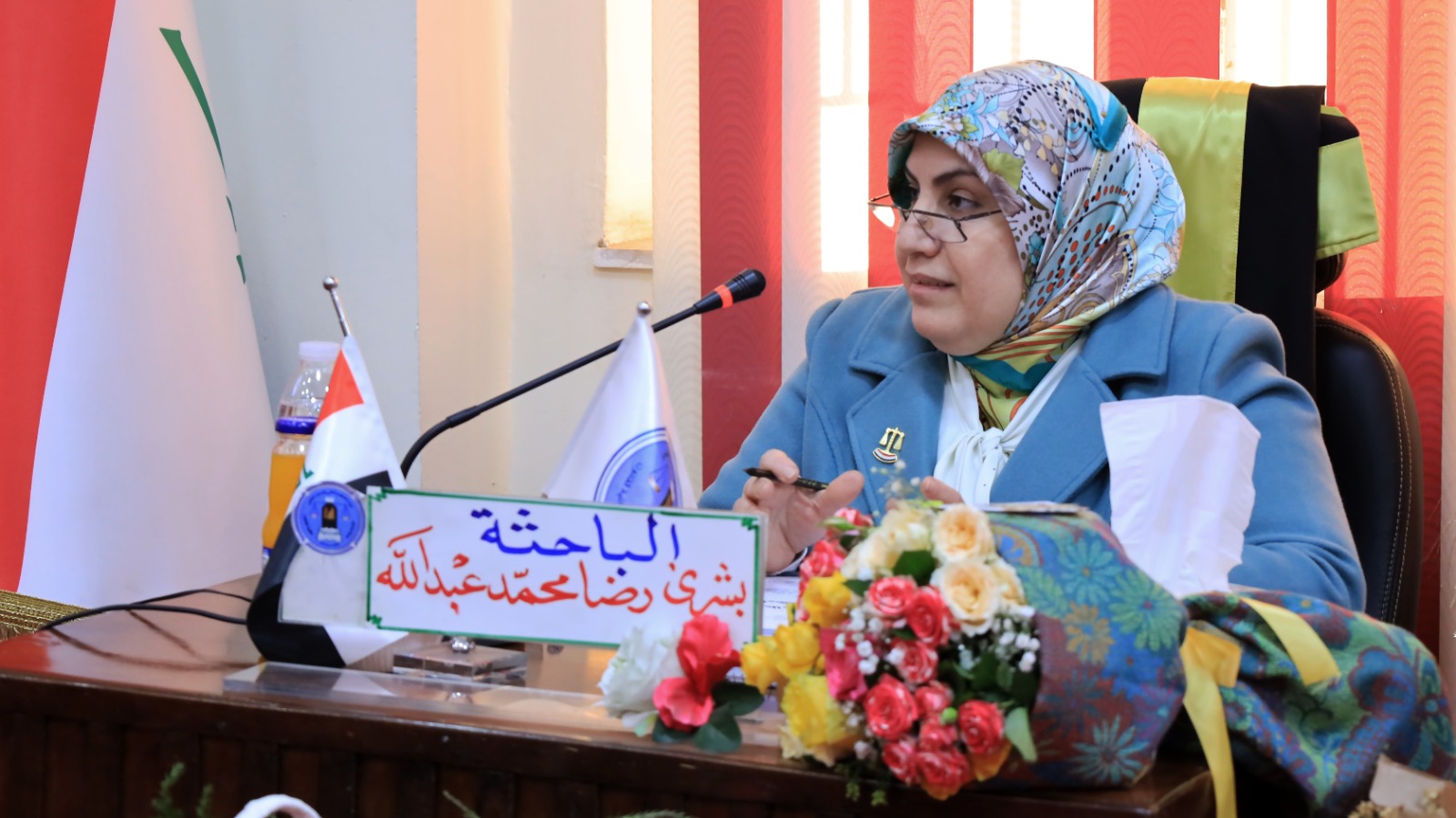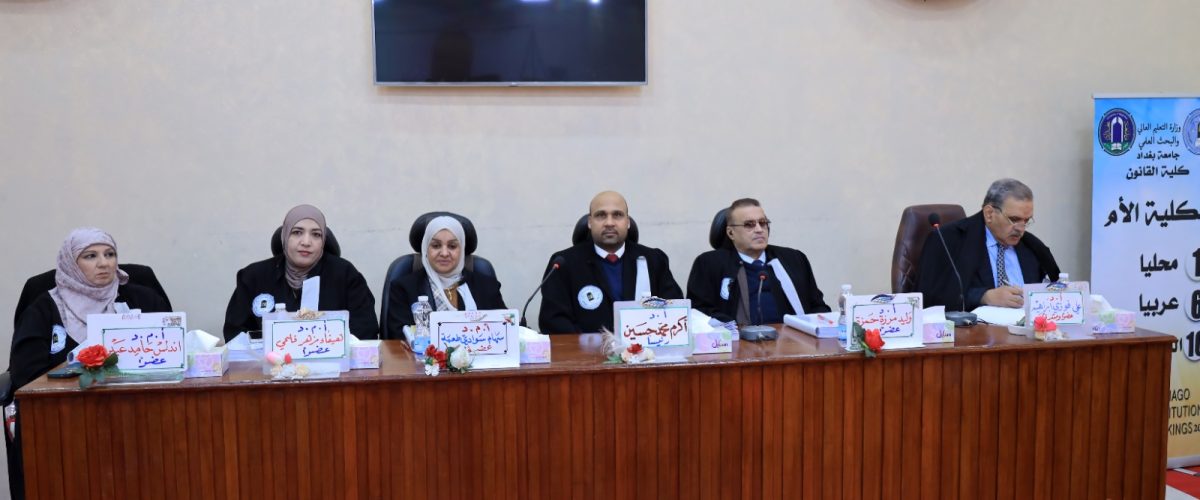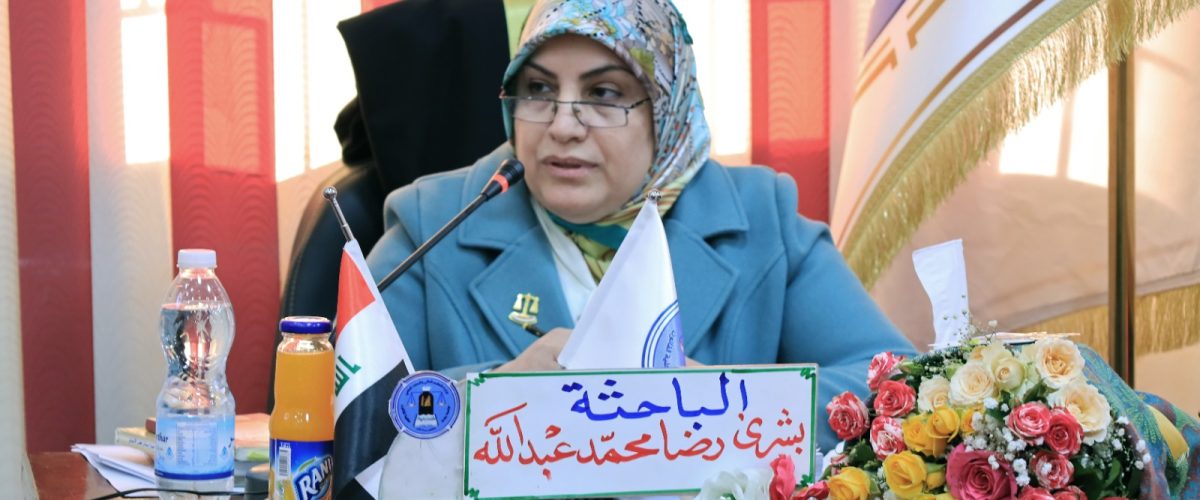The College of Law at the University of Baghdad discussed the doctoral dissertation in the field of private law of the student (Bushra Rida Muhammad) titled “The Legal System of Oil Participation Contracts,” on Wednesday, December 18, 2024, in the college’s conference hall.
The discussion committee consisted of the following members:
– Dr. Akram Muhammad Hussein (Chairman)
– Dr. Walid Marza Hamza (Member)
– Dr. Sihem Swadi Tama (Member)
– Dr. Andalous Hamed Abd (Member)
– Dr. Haifa Mizher Falhi (Member)
– Dr. Ali Fawzi Ibrahim (Member and Supervisor)
The dissertation aimed to investigate the regulation of oil participation contracts by studying the concept of this complex system and rationalizing the foundations and practices in comparative legislation that govern this type of contract, while adopting what fits the economic reality, development plans, and laws governing the oil industry in Iraq through studying the characteristics of this contract and the obstacles that hinder its conclusion and legal legitimacy to avoid its nullification or disputes related to the contract’s subject. It also aimed to clarify the most important conditions that can be included in the contract, which primarily serve the interests of the state.
The dissertation included three chapters: the first chapter addressed the concept of oil participation contracts, the second chapter discussed the conclusion of oil participation contracts (PPP), and the third chapter dealt with the effects of oil participation contracts (PPP) and cases of nullity.
The dissertation concluded with several recommendations, the most important of which are:
1. We request the Iraqi legislator, like the oil-exporting countries, to impose an environmental tax on foreign oil companies as a deterrent measure against those who do not comply with laws and regulations.
2. We hope the Iraqi legislator will expedite the approval of the oil and gas law and address the disputed clauses objectively with possible solutions, given the importance of this law in managing oil operations.
3. We suggest that the responsible authority for managing oil contracts replace the proposed force majeure with foreign cause in light of what is stated in the Civil Law No. 40 of 1951, as the foreign cause is broader and clearer to encompass damages caused by third parties or the affected party.
4. The price should not be the only consideration in evaluating the offers submitted by qualified companies; rather, the criteria for preference should be based on the technical offer and the advanced new technologies and expertise that the nominated companies provide in the field of the oil industry.



